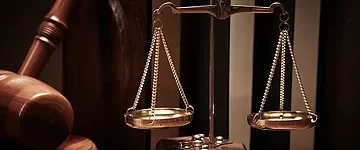Medico Legal Case: Arun Kumar Manglik v/s.Chirayu Health And Medicare Private Ltd. & Anr.
Doctors must abide by the protocols and guidelines issued by the appropriate authorities and learned during academic years

Case Details
Case Name: Arun Kumar Manglik v/s.Chirayu Health And Medicare
Date of judgment : 9th January 2019.
Judgment is against the Doctors
Facts of the Case:-
The spouse of the appellant, Madhu Manglik, was diagnosed with dengue fever. The patient was admitted to Chirayu Health & Medicare hospital at Bhopal at about 7 am on 15 November 2009. She was immediately admitted to the Intensive Care Unit. Though she was a febrile, she reported accompanying signs of dengue fever including headache, body ache and a general sense of restlessness. The patient had a prior medical history which included catheter ablation and paroxysmal supra ventricular tachycardia suggestive of cardiac complications. Since the patient was complaining of abdominal discomfort, an ultrasonography of the abdomen was carried out. By 6 pm, on the date of admission the patient was sinking, her blood pressure was non-recordable, extremities were cold and the pulse was non-palpable. At 6.45 p.m. the patient suffered a cardiac arrest she was declared dead at 8.50 pm. The appellant instituted a complaint before the State Consumer Commission seeking an award of compensation in the amount of Rs. 48 lakhs on the ground that his spouse suffered an untimely death due to the medical negligence of the treating doctors at the hospital. By its judgment dated 27 April 2015, the SCDRC came to the conclusion that a case of medical negligence was established. An amount of Rs. 6 lakhs was awarded to the appellant by way of compensation, together with interest at the rate of 9 per cent per annum. Aggrieved by the order, the doctors appealed to the National Consumer Commission and then to Supreme Court.
Complainants’ allegations of medical negligence:
- The patient was admitted to the hospital on 15 November 2009 with a reported case of dengue, though in a stable condition;
- The hospital and the treating doctors failed to follow the protocol in treating dengue;
- The line of treatment was contrary to the guidelines formulated by the World Health Organization, titled “Dengue Guidelines for Diagnosis, Treatment, Prevention and Control”;
- Except for the blood sample which was taken at about 7.30 am, no further effort was made to determine the hematocrit levels (HCT) during the course of the day and it was only when the patient suffered a cardiac arrest after 6 pm that blood investigations were done at about 7.15 pm.
Doctor’s Defense:
The patient had been suffering from fever from several days prior to her admission to the hospital. She was stable at the time of admission on 15 November 2009. The patient did not go into a situation of a dengue shock syndrome or hemorrhagic fever during the course of the day when she was admitted to the hospital. In such a situation, no requirement of regular monitoring of HCT was warranted in accordance with the guidelines which have been prescribed by the Directorate of National Vector Borne Diseases Control Programme (DNVBDCP); The above guidelines, which have been prescribed by the Union of India under the National Rural Health Mission, would indicate that it is only in a situation involving dengue hemorrhagic fever or dengue shock syndrome that further step would be necessary. The fluids which were administered to the patient did not require a monitoring of the blood more than twice a day and it was only in the evening that the HCT levels were required to be evaluated; The patient had prior cardiac complications for which she had been on an aspirin regime prior to admission to the hospital. She was carefully monitored by a team of four doctors at the hospital. The treatment protocol which was followed was consistent with the guidelines which have been prescribed both by WHO as well as by the National Vector Borne Diseases Control Programme.
Findings of the Supreme Court:
The Supreme Court has reiterated that NCDRC has merely observed that once the patient was admitted to the hospital, the patient was given medicines. This, it is an insufficient basis to displace the findings of fact and conclusions recorded by the State Commission. For the above reasons, we are of the view that the judgment of the State Commission is unsustainable. There was no basis or justification to reverse the finding of medical negligence which was arrived at by the SCDRC. However, there is no basis for recording a finding of medical negligence against the Director of the hospital. The Director of the hospital was not the treating doctor or the referring doctor. Hence, while the finding of medical negligence against the hospital would stand confirmed, the second respondent would not be personally liable. That leads the Court to the question of damages. Finding the hospital and its Director guilty of medical negligence, the State Commission directed compensation in the amount of Rs. 6 lakhs together with interest at 9 per cent but the amount of compensation is enhanced. The NCDRC accordingly, directed that the appellant shall be entitled to receive an amount of Rs. 15 lakhs by way of compensation from the treating doctor. Further, the Supreme Court upheld the order pronounced by the State Consumer Commission.
Learning from the Case Study:
The doctors should abide by the protocols or guidelines pertaining to the medical literature that is established by the appropriate authorities.
